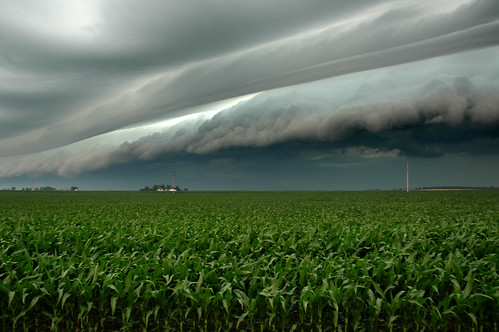Can’t believe it’s been so long since I’ve posted anything… Here’s Chapter 30 from George Herbert’s The Country Parson.
THe Countrey Parson considering the great aptnesse if Countrey people have to think that all things come by a kind of naturall course; and that if they sow and soyle their grounds, they must have corn; if they keep and fodder well their cattel, they must have milk, and Calves; labours to reduce them to see Gods hand in all things. and to beleeve. that things are not set in such an inevitable order, but that God often changeth it according as he sees fit, either for reward or punishment. To this end he represents to his flock, that God hath and exerciseth a threefold power in every thing which concernes man. The first is a sustaining power; the second a governing power; the third a spirituall power. By his sustaining power he preserves and actuates every thing in his being; so that corne doth not grow by any other vertue, then by that which he continually supplies, as the corn needs it; without which supply the corne would instantly dry up, as a river would if the fountain were stopped. And it is observable, that if anything could presume of an inevitable course, and constancy in its operations, certainly it should be either the sun in heaven, or the fire on earth, by reason of their fierce, strong, and violent natures: yet when God pleased, the sun stood stil, the fire burned not. By Gods governing power he preserves and orders the references of things one to the other, so that though the corn do grow, and be preserved in that act by his sustaining power, yet if he suite not other things to the growth, as seasons, and weather, and other accidents by his governing power, the fairest harvests come to nothing. And it is observeable, that God delights to have men feel, and acknowledg, and reverence his power, and therefore he often overturnes things, when they are thought past danger; that is his time of interposing: As when a Merchant hath a ship come home after many a storme, which it hath escaped, he destroyes it sometimes in the very Haven; or if the goods be housed, a fire hath broken forth, and suddenly consumed them. Now this he doth, that men should perpetuate, and not break off their acts of dependance, how faire soever the opportunities present themselves. So that if a farmer should depend upon God all the yeer, and being ready to put hand to sickle, shall then secure himself, and think all cock-sure; then God sends such weather, as lays the corn, and destroys it: or if he depend on God further, even till he imbarn his corn, and then think all sure; God sends a fire, and consumes all that he hath: For that he ought not to break off, but to continue his dependance on God, not onely before the corne is inned, but after also; and indeed, to depend, and fear continually. The third power is spirituall, by which God turnes all outward blessings to inward advantages. So that if a Farmer hath both a faire harvest, and that also well inned, and imbarned, and continuing safe there; yet if God give him not the Grace to use, and utter this well, all his advantages are to his losse. Better were his corne burnt, then not spiritually improved. And it is observable in this, how Gods goodnesse strives with mans refractorinesse; Man would sit down at this world, God bids him sell it, and purchase a better: Just as a Father, who hath in his hand an apple, and a piece of Gold under it; the Child comes, and with pulling, gets the apple out of his Fathers hand: his Father bids him throw it away, and he will give him the gold for it, which the Child utterly refusing, eats it, and is troubled with wormes: So is the carnall and wilfull man with the worm of the grave in this world, and the worm of Conscience in the next.
One thing I find interesting about this chapter is that Herbert clearly shows an understanding of Providence as working through the natural order. I think we have a tendency to think that the doctrine of Providence is difficult for us because we are on this side of the Scientific Revolution. The amount of knowledge we have of the workings of the natural world, and the way we are raised to understand these causes from our earliest education (my daughter in 1st grade brought a picture she had drawn of the water cycle home from school the other day) might lead us to think that the belief in a God who provides rain or guides those ‘chance’ meetings is especially difficult for the modern world. What I find interesting in this passage is that Herbert, who died ten years before Newton was born, found an understanding of providence to be a problem for English villagers. They too saw a cause and effect world and had to be reminded that God was the ultimate cause of the gifts of creation which they labored for and enjoyed.
Note also that the vision of God’s providence is not, as might be supposed of an early 17th Century Divine, one of a God acting directly or supernaturally, but as guiding natural events to work out His purposes — ‘if he suite not other things to the growth, as seasons, and weather, and other accidents by his governing power, the fairest harvests come to nothing’.
(image The Storm Cloud by rachel_r)
